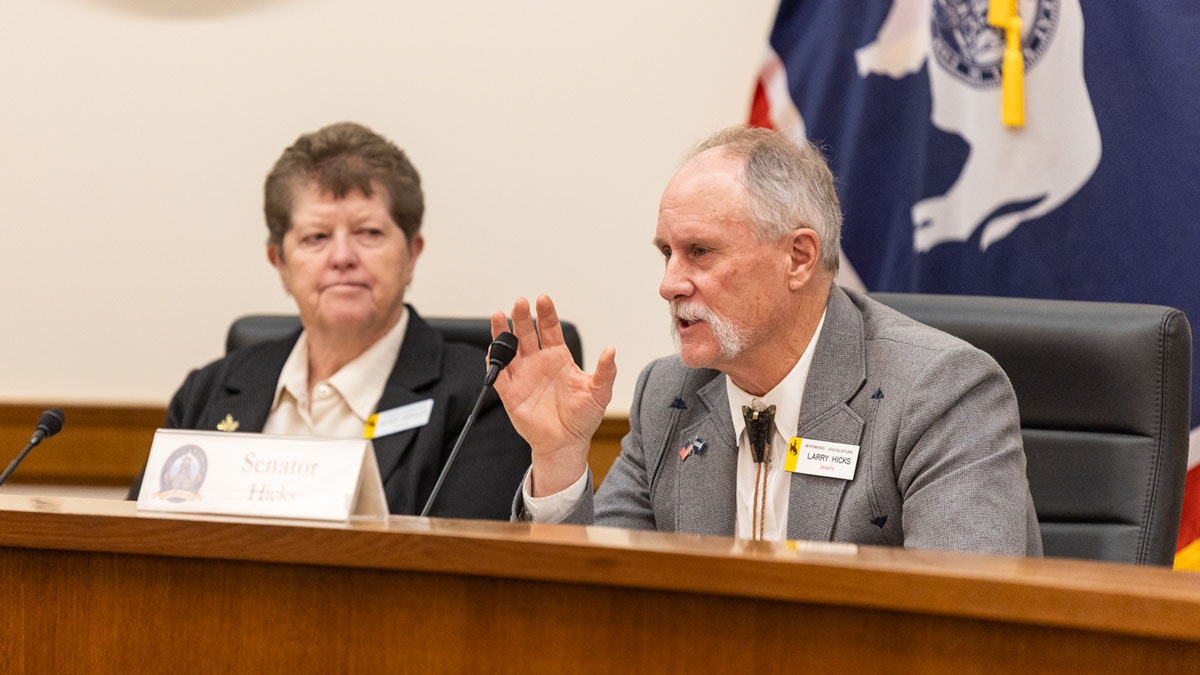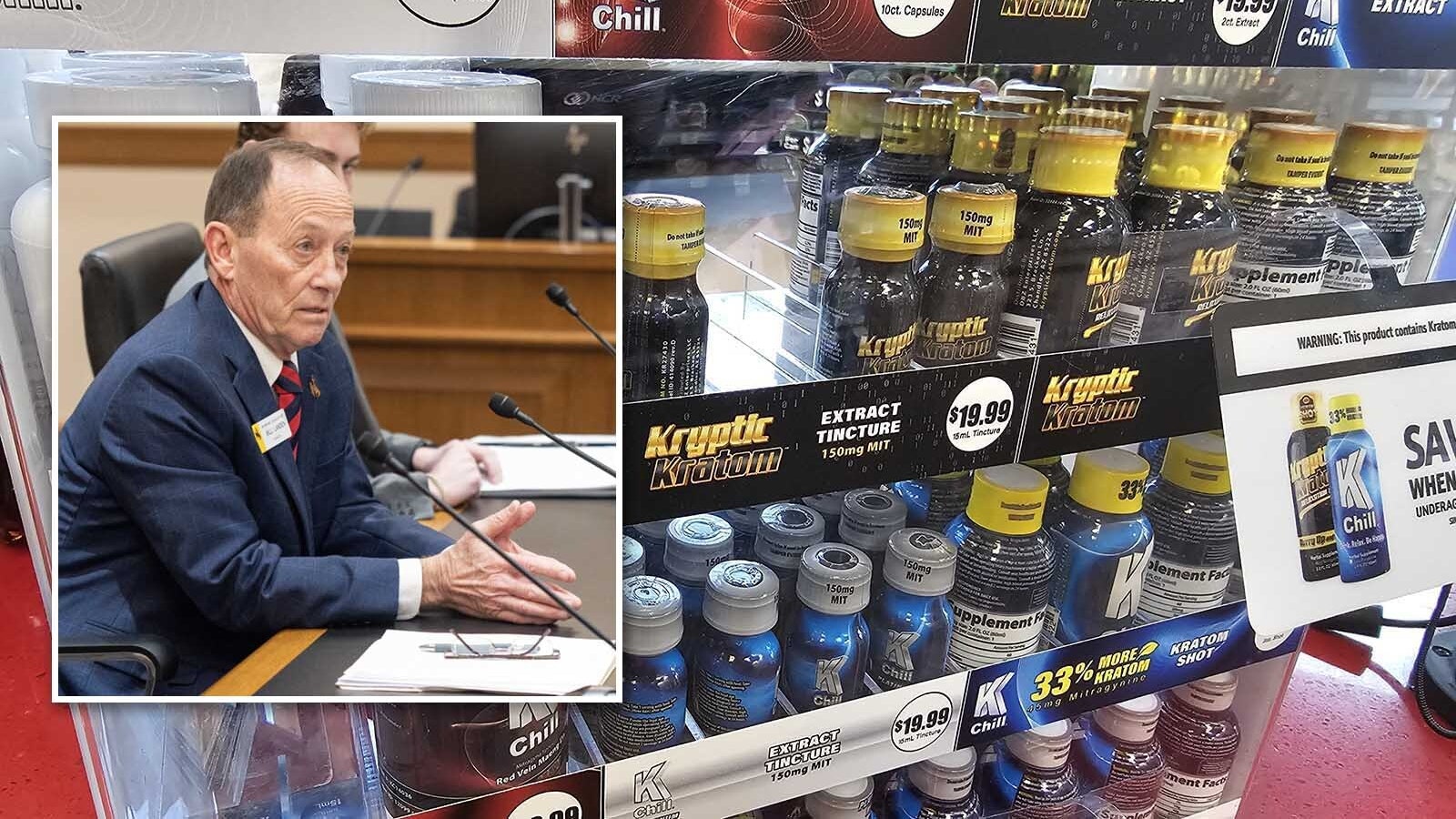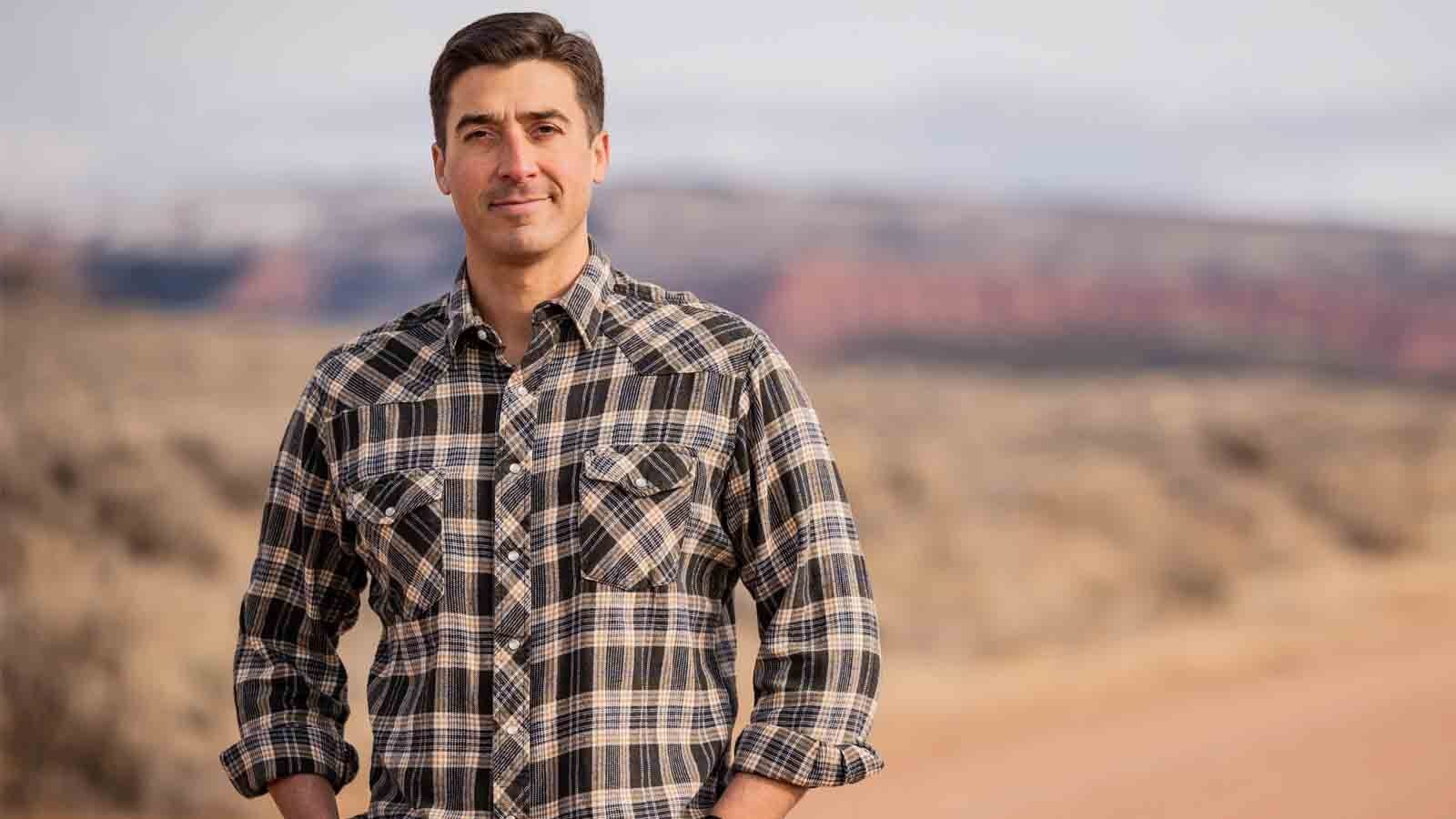A Converse County commissioner was in Washington, D.C., this week to lobby Congress about the bureaucratic and cost challenges U.S. counties have in maintaining roads and highway infrastructure.
Converse County Commission Chair James Willox was one of four witnesses to testify Wednesday for the U.S. House Committee on Transportation and Infrastructure’s subcommittee dealing with highways and transit representing the National Association of Counties.
He said he is active in the association’s transportation committee and serves as its vice chair. So, he was asked to testify.
“My goal was to ask that committee that they look at flexibility, what works in Converse County doesn’t necessarily work in New York or in Texas,” he said. “So, to build as much flexibility as possible in bills going forward that deal with safety. There’s a difference between gravel roads and paved roads and that was part of my role to point that out.”
In an opening statement, Willox told the 52-member panel chaired by Rep. David Rouzer, R-North Carolina, that the nation’s counties have responsibility for 44% of public road miles, 38% of the bridges and oversee a third of the nation’s transit systems and airports.
“The ownership comes at significant cost to counties,” he said, adding U.S. counties pay $146 billion on infrastructure and more than $60 billion on transportation every year.
Converse County and other rural counties across the nation also have infrastructure that may include timber bridges and gravel roads, which means “safety measures in rural areas will look very different from ones used elsewhere in the country,” Wilcox said.
Federal Permits
Willox said the biggest challenge for counties, especially rural counties, is managing the federal permitting requirements, which pose timeliness and cost problems for local governments.
“Before counties can even begin essential infrastructure projects, we must navigate a maze of federal permits, often waiting months or even years for approvals,” he said. “This is especially true in Western states, given the large amount of federal land that increases the need for consultations and approvals.”
Willox pointed to the National Environmental Policy Act as particularly onerous.
Converse County spent 10 months trying to get a Bureau of Land Management right-of-way determination for a road that has existed since 1892 and only after that could begin the environmental review process, he said.
“We have faced similar issues with the U.S. Forest Service while working on a project that would ultimately make and existing road safer,” Willox testified. “These unnecessary bureaucratic hurdles prevent timely repairs and allow know safety risks to continue or even worsen.”
Willox lobbied the panel to open federal transportation safety money for dust suppression on gravel roads, which can become dangerous in the dry season. He also pushed for more consideration of rural areas when mandates are passed down without funding to match.

Road Striping
He also pointed to discussions he has been involved in to expand road striping from 4 inches to 6 inches.
“While this seems like a simple change, for counties with limited budget capacity, this is a 50% increase in the amount of paint needed to re-stripe a road,” he said. “With many counties owning hundreds, if not thousands, of road miles, a 50% increase can be a serious financial burden.”
Willox asked that “local voices” be allowed to be heard as new transportation legislation moves through the new Congress.
During the question-and-answer time with representatives, Willox said he kept using his opportunities to drive home the point that what works in one area of the country may not in another. He said he pointed out that Converse County is bigger than the entire state of Rhode Island.
“I just love the visual of how big our Wyoming counties are compared to an entire state,” he said. “And so, when you are writing federal policy, it’s both difficult but necessary to not try to make one size fits all.”
He said there was quite a bit of talk about autonomous vehicles which in Wyoming are yet an issue. Willox also said he wanted Congress aware that sometimes the budgets county governments deal with force hard choices when considering road improvements.
“It’s true that many of our commissioners when they are working on stuff if they have a safety project or they need to put another $100,000 toward a blade, many times they will make the choice go toward the blade because it’s the hard choice you have to make,” he said. “When you have limited resources where do you spend your money? Sometimes a safety project does win out.”
Willox said he tried to communicate how much of a “balancing act” county commissions need to maintain while fulfilling their responsibilities.
The testimony is the third time Willox said he has testified before Congress and the second time representing the National Association of Counties.
“I enjoyed it. I got to meet some of the panelists,” he said. “Transportation is a less partisan issue than other areas. … I enjoyed the opportunity to share a rural perspective and particularly, Wyoming’s perspective.”
Dale Killingbeck can be reached at dale@cowboystatedaily.com.





